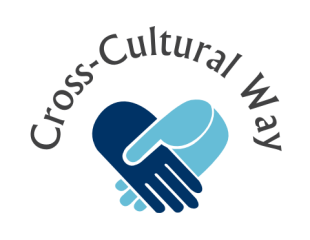Perspectives on a Country from the Comparative Systems
For any major country, the decision to adopt or shelve the notion of nationwide elections is not straightforward when putting the historical contexts into consideration. Especially when we compare China with the U.S., the contrast is particularly stark.
Undeniably, the U.S., the youngest and most vibrant nation on earth with the highest ideal at heart, is built on the principle of “life, liberty and the pursuit of happiness.” Thus, it views freedom as its highest value, including national freedom, political freedom, and individual freedom. However, per David M. Rubenstein in his N.Y. Times bestseller book, “The American Experiment,” the U.S., with all its built-in DNAs, is still evolving through its political ups and downs as part of its experimenting process.
In contrast, it’s almost impossible for countries like China to make a similar declaration and start the system anew because of its long history and deep-rooted traditions–filial piety as a family tradition and collective conformity as social tradition, among others. Instead, it’s a long process of evolving, a consistent effort to find balances, making comparisons and compromises to sustain growth while maintaining stability. Therefore, relinquishing its ingrained culture to adopt an election system may not be the best at this developing stage—when half of its population still survive in subpar living conditions.
Let’s put aside the apparent differences between the two countries—such as history, tradition, cultural, ethnic compositions—which play pivotal roles in shaping their systems but examine the seemingly simple questions in this limited space. Somehow, political leaders and scholars often gloss over them only to embrace many simplistic labels (social, political, or otherwise) as a substitute for critical thinking. Consequently, these labels often distort the truths because they ignore all other existing variations and possibilities.
So here are the questions:
- What makes society a good one?
- To answer this question, what measuring tools should the country use?
In fact, there is no shortage of measuring indexes, such as GDP growth and per capita, taxation, employment, inflation, the Gini for inequality, healthcare and life expectancy, happiness, social cohesion vs. individual freedom, among many others.
Yet, there are no definite answers as to which measurements to go by because every one of these objectives has advantages and disadvantages that must be balanced. Somehow, most scholarly articles often choose to discuss one or two objectives at a time while ignoring the rest or finding the proper balance. How would that help to see the overall pictures of what a good society should be, much less about sustaining well-balanced policies?
Furthermore, capitalism and socialism are often viewed as opposition to each other in today’s discussions, which is far from the truth by looking at their evolutions and innate social structures. They are, in fact, inextricably interwoven, overlapping, and showing most grey areas that no one country is simply either way. A strong government is necessary even in the most free-market systems, like the U.S., or in a meritocracy system of any developed one. And yet, how much government regulations, interventions, spending, and social welfare should be appropriate has been a Sisyphean task, riddled with debates and counterarguments. The bottom line is that there is no universal answer to what makes a good society. One may wonder what all these scholars and government officials are for—elected or otherwise. How about United Nations?
China has a rather distinct system but aims at the same goal: building a better society (whatever it may mean to you), having a long way to go. And then, Sweden is often viewed as the third model because of its competitive mixed economy and the strong welfare state, with its public sector accounting for up to three-fifths of GDP, but far less inequality, being ranked as one of the happiest countries in the world. And yet, its average income tax is north of 50%. The French model is closer to Sweden regarding its large public sector and social welfare and is rated by WHO as the #1 healthcare system globally. The point is that no two countries are the same once we get into the comparative systems studies. So why do we have just two labels: capitalism and socialism?
Another question comes to mind: when entering into social, cultural, or political discussions, why do we often fall for the black-or-white fallacy when gray is a common reality?

